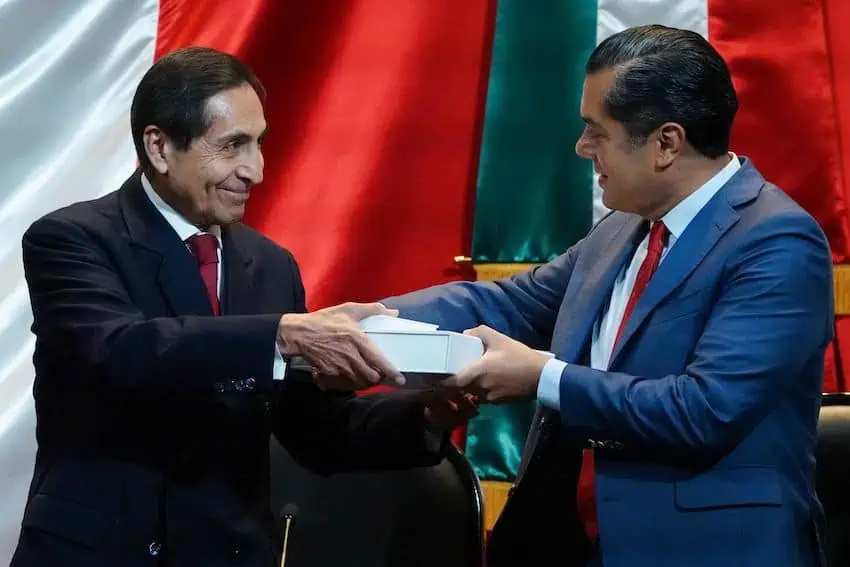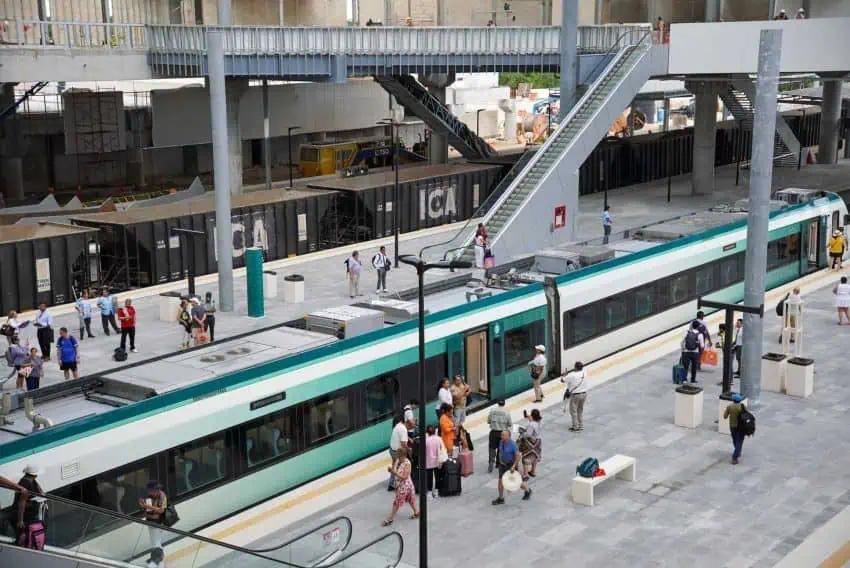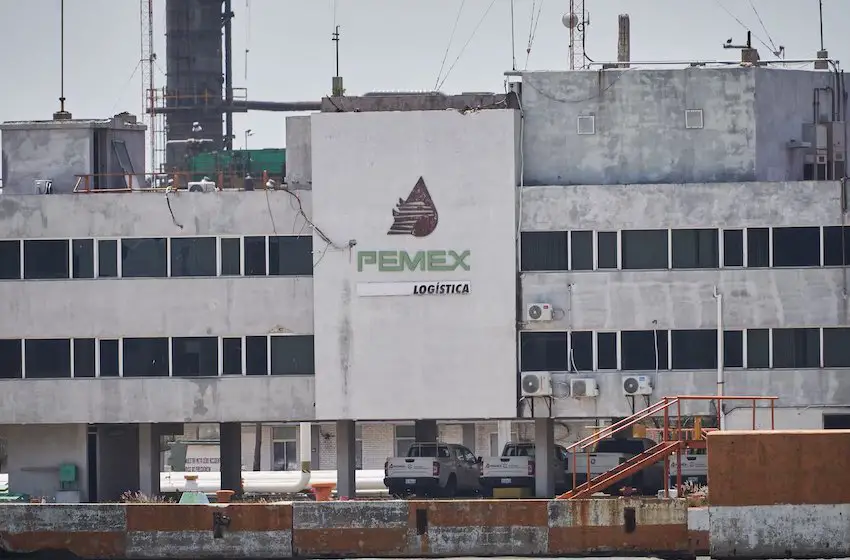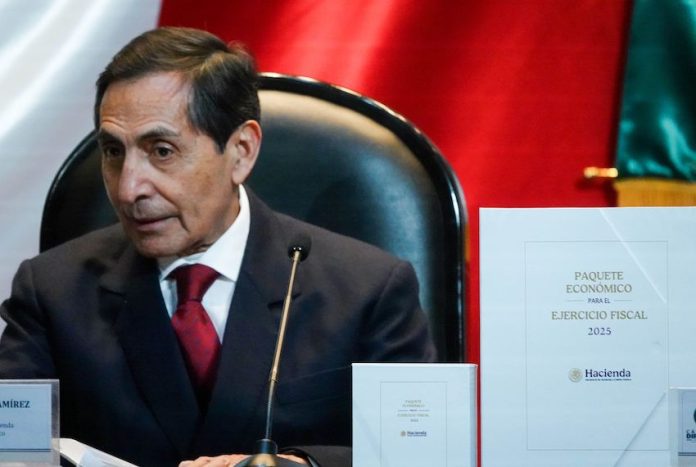The federal government has outlined its spending plans for 2025, presenting a budget proposal that details expenditures in excess of 9 trillion pesos.
Finance Minister Rogelio Ramírez de la O submitted a 9.3-trillion-peso (about US $460 billion) budget proposal to the lower house of Congress on Friday. The total planned expenditure is 2.6% higher than federal government spending in 2024, but represents a 3.6% reduction in real terms.

The Congress, dominated by lawmakers from the ruling Morena party and its allies, is expected to approve the proposal in the coming weeks.
In terms of year-over-year funding decreases and increases in percentage terms, the Defense Ministry (Defensa) is the biggest loser while the Agrarian, Land and Urban Development Ministry (Sedatu) is the biggest winner.
Let’s take a closer look at the federal government’s planned allocation of funds in 2025.
The losers
The Defense Ministry, now abbreviated as “Defensa” after the ministry used the Sedena acronym for almost 90 years, has been allocated 151.99 billion pesos in funding for 2025, a reduction of 43.8% compared to 2024.

Funding for four state-owned companies under the Defense Ministry’s purview, including the firm responsible for operating the Maya Train railroad, has been cut by 70%.
In addition to carrying out national defense tasks and responding to natural disasters, Defensa is involved in a wide range of non-traditional tasks including public security and infrastructure construction. Among the infrastructure projects the ministry built or partially built are the Tulum Airport, which opened in late 2023, and the Maya Train railroad, most sections of which are now operational.
The Maya Train is slated to receive funding of 40.82 billion pesos in 2025, a reduction of 67.5% compared to this year.
After Defensa, the federal government entities set to face the next biggest budget cuts in percentage terms in 2025 are as follows:
- The Environment Ministry (Semarnat): funding to decline 39.4% to 44.37 billion pesos. The biggest funding cut is in the realm of “economic development” within Semarnat, but the allocation for scientific research will also decline.
- The Security Ministry: funding to decline 36.2% to 70.44 billion pesos. The ministry’s funding is set to be cut even though it will have new investigative powers as the result of a recent constitutional reform, and despite high levels of insecurity in various parts of the country.
- The Health Ministry: funding to decline 34% to 66.69 billion pesos.
- The Energy Regulatory Commission: funding to decline 32.9% to 200 million pesos.
- National Hydrocarbons Commission: funding to decline 32.9% to 173 million pesos.
- Energy Ministry: funding to decline 31.3% to 138.3 billion pesos.
- Culture Ministry: funding to decline 30.8% to 12.08 billion pesos.
- National Transparency Institute (INAI): funding to decline 18.1% to 994 million pesos.
- National Institute of Statistics and Geography (INEGI): funding to decline 17.5% to 12.25 billion pesos.

Among the other government entities whose budget is set to be cut in 2025 is state oil company Pemex. The Finance Ministry proposed funding of 464.25 billion for Pemex next year, a 7.5% annual cut. Some 136 billion pesos are projected to go to the heavily indebted oil company to cover debt repayments in 2025.
A number of other ministries including Mexico’s Tourism Ministry, the Interior Ministry, the Foreign Affairs Ministry, the Finance Ministry (SHCP), the Labor Ministry, the Agriculture Ministry and the Economy Ministry will receive fewer resources in 2025. The budget of the president’s office will also be cut.
The winners
The government entities set to receive the biggest increases in funding in percentage terms next year are as follows:
- Agrarian, Land and Urban Development Ministry (Sedatu): funding to increase 183.3% to 38.04 billion pesos. The ministry is set to receive a major funding boost as the government implements an ambitious plan to build 1 million new homes over the next six years.
- Infrastructure, Communications and Transportation Ministry (SICT): funding to increase 72% to 140.79 billion pesos. Among the government’s top infrastructure priorities are new passenger rail projects, highway repairs, water projects and the development of new industrial corridors.
- “Non-sectored entities,” including the National Institute for Indigenous Peoples and the Executive Commission for Attention to Victims: funding to increase 21% to 174.62 billion pesos.
- State Workers Social Security Institute (ISSSTE): funding to increase 6% to 525.61 billion pesos.
- Federal Electricity Commission (FCE): funding to increase 6% to 525.47 billion pesos.
- Mexican Social Security Institute (IMSS): funding to increase 4.7% to 1.47 trillion pesos.
- National Electoral Institute (INE): funding to increase 2.8% to 40.47 billion pesos. The INE will be responsible for organizing Mexico’s first-ever judicial elections in June 2025.
- Welfare Ministry: funding to increase 2.3% to 579.88 billion pesos. This ministry is responsible for making payments to old-age pensioners as well as beneficiaries of various government social programs and scholarship schemes.
- Public Education Ministry (SEP): funding to increase 1.6% to 450.88 billion pesos.
Funding for the judiciary, federal Congress, the Federal Auditor’s Office and the Federal Attorney General’s Office will also increase in 2025.

Funding for states and municipalities
The Finance Ministry proposed combined funding of 4.89 trillion pesos (US $241 billion) for Mexico’s 32 state governments and thousands of municipal governments.
The figure represents an increase of 7% compared to the funding approved for 2024.
SHCP’s 2025 projections
The Finance Ministry (SHCP) and Finance Minister Ramírez outlined a range of projections on Friday. They include:
- Government revenue of just over 8 trillion pesos in 2025, mostly from tax collection. Ramírez said that tax collection would reach 14.6% of Mexico’s GDP.
- A budget deficit of 3.9% in 2025, down from an estimated 5.9% shortfall this year.
- Public debt of 51.4% of GDP in 2025.
- Economic growth of 2-3% in 2025, a forecast more optimistic than those of the International Monetary Fund and the World Bank.
- A USD:MXN exchange rate of 18.7 at the end of 2025. The rate shortly after midday Mexico City time on Monday was 20.25.
- An average oil export price of US $57.80 per barrel in 2025.
With reports from El Economista, Expansión, El País, El Financiero, Reforma and El Universal
